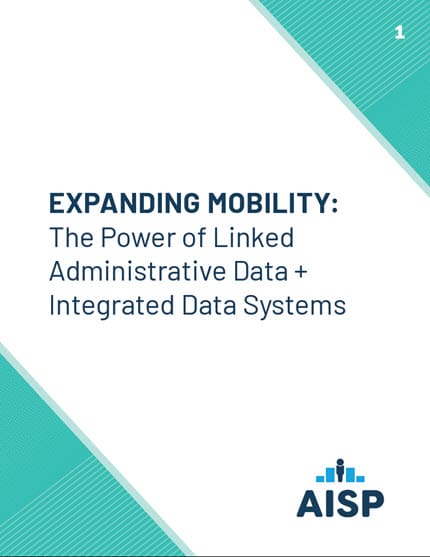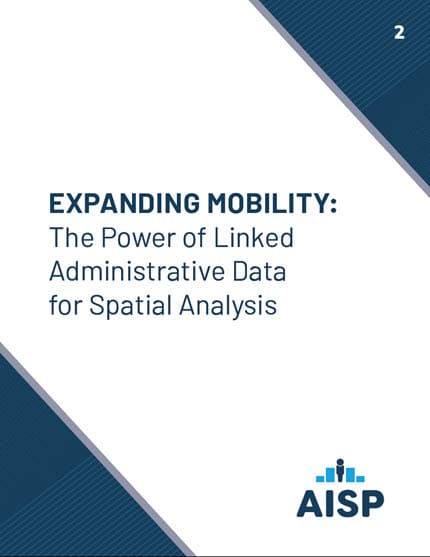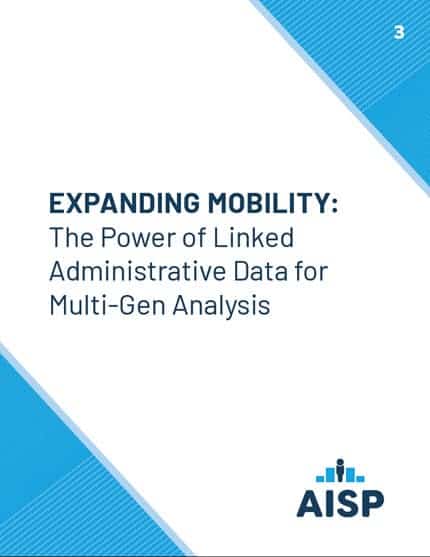The Power of Linked Administrative Data + Integrated Data Systems
Economic mobility is complex. A person’s well-being and ability to achieve mobility depend on their whole ecosystem: their relationships, their sense of community, and, more materially, their access to basic needs and assets. At AISP, we believe that to craft solutions that expand economic mobility, we need to study it holistically.
Our three-part series explores the benefits of integrated, cross-sector administrative data for studying the factors, programs, and policies that drive mobility out of poverty.
How does linking individual-level administrative data across sectors improve mobility research and action?
It allows us to:
- observe trends and mobility trajectories across a population,
- better identify and understand the service use patterns of population subgroups,
- measure and evaluate specific program impact on mobility over time, and
- evaluate the impact of broader social policies on well-being and mobility more holistically.
What’s more, researchers can deepen any of these inquiries by conducting an analysis that is spatial or multi-generational.
Linked data allow us to better capture the complex experiences of people over time and across domains so that we can craft equitable solutions at the systems level.
Explore Our Three-Part Series
Each report provides conceptual framing, examples of “work in action,” and recommendations for research and practice. This series was developed based on findings from our latest national survey of data integration efforts across the US, interviews and expert working group meetings, and from more than a decade of working with and learning alongside our Network and Learning Community Sites.



